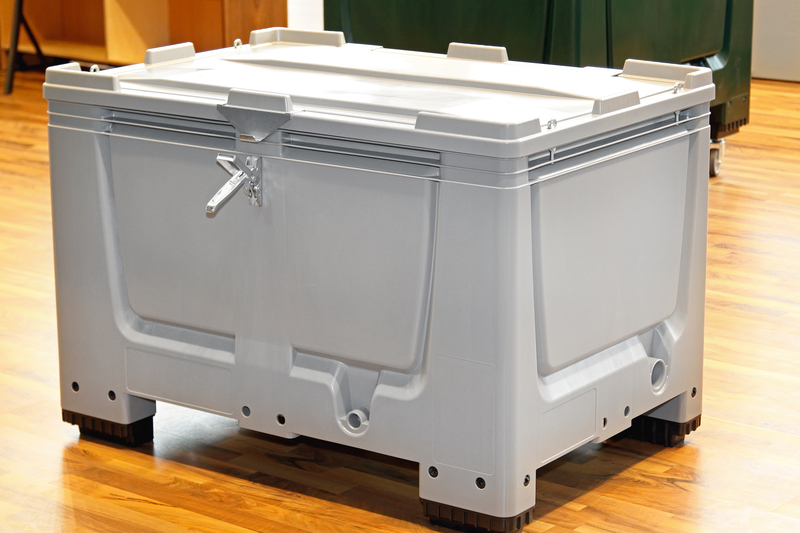Packing Hacks for Moving to a New City
Posted on 08/10/2025
Moving to a new city can be an exciting yet overwhelming experience. The thrill of exploring new places, meeting new people, and starting fresh can quickly be overshadowed by the daunting task of packing up all your belongings. However, with a little planning and some clever hacks, you can simplify the moving process and make it a more manageable endeavor. This guide will provide you with a comprehensive list of packing hacks that can save you time, money, and effort when moving to a new city.
1. Start Early and Declutter
One of the most effective ways to make your move less stressful is by starting the packing process early. Procrastination can lead to rushed packing, which increases the chances of forgetting items or packing them improperly. Begin by decluttering your home. Sort through your belongings and decide what to keep, what to donate, and what to throw away. Be ruthless with this process; the fewer items you have to move, the easier it will be.

2. Create a Packing Plan
Creating a packing plan can help you stay organized and ensure that you don't forget anything important. Divide your home into sections (e.g., kitchen, bedroom, living room) and tackle one section at a time. Use a checklist to keep track of which rooms have been packed and what items are in each box. This method can help you avoid the chaos of random packing and make unpacking in your new city a breeze.
3. Gather Packing Supplies
Having the right packing supplies is crucial for a smooth move. Here are some must-have supplies you should gather:
- Sturdy boxes of various sizes
- Bubble wrap and packing paper
- Packing tape and a dispenser
- Permanent markers
- Furniture blankets
- Trash bags
If you're on a budget, consider asking local stores for old boxes or visiting online marketplaces for free packing materials.
4. Use Suitcases and Drawers
Maximize your packing space by using items you already have, like suitcases and drawers. Fill suitcases with heavy items such as books or shoes, and slide lighter, softer items like clothing or linens into dresser drawers. This not only saves space but also makes it easier to transport these belongings.
5. Label Everything
Labeling your boxes is a game-changer when it comes to packing. Clearly mark each box with its contents and the room it belongs to. Additionally, consider using a color-coding system where each room is assigned a specific color. This helps movers know exactly where each box should go, making the unpacking process more efficient.
6. Protect Fragile Items
Protecting your fragile items during the move is essential to avoid breakage. Here are some tips for keeping those delicate items safe:
- Use clothing, towels, or blankets as padding for fragile items.
- Wrap each item individually with bubble wrap or packing paper.
- Fill any empty spaces in the box with extra packing material to prevent shifting.
- Clearly mark boxes containing fragile items with "Fragile" and "This side up" to inform movers.
7. Pack a First-Day Essentials Box
Upon arriving at your new home, you won't want to sift through countless boxes to find the essentials you need. Pack a box with first-day essentials such as toiletries, medications, a change of clothes, basic kitchen items, important documents, and anything else you might need immediately. Keep this box with you during the move rather than in the moving truck.
8. Take Photos of Electronics
Before you start disconnecting your electronics, take photos of the wiring setups. This will help you remember how to reconnect them in your new home. Label each cable and wire to make the process even more straightforward.
9. Utilize Vacuum-Seal Bags
Vacuum-seal bags are a fantastic way to save space when packing bulky items like clothes, blankets, and pillows. These bags remove excess air, shrinking the items to a fraction of their original size. This not only saves space but also protects your belongings from moisture and dust during the move.
10. Take Advantage of Vertical Space
When packing boxes, think vertically. Stack heavier items at the bottom and lighter items on top. This method prevents fragile items from being crushed and maximizes the use of space within each box. Additionally, consider using luggage racks or collapsible storage bins to stack and organize boxes in the moving truck.
11. Disassemble Furniture and Large Items
To make moving large furniture and bulky items easier, disassemble them as much as possible. This includes taking apart bed frames, removing table legs, and detaching mirrors from dressers. Keep screws, bolts, and other small parts in labeled bags taped to the respective furniture pieces to ensure everything stays together.
12. Prioritize and Pack Smart
When packing, prioritize items you use less frequently. Start with seasonal items, decorations, and non-essential items. Leave everyday essentials for last. Additionally, pack similar items together to make unpacking easier. For example, keep kitchen utensils with other kitchen items and bathroom supplies with other bathroom belongings.
13. Get Help from Friends and Family
Don't be afraid to ask for help from friends and family. Moving can be exhausting, and having extra hands can make the process go much more smoothly. Offer to return the favor in the future and perhaps provide some snacks or refreshments as a thank-you for their assistance.
14. Consider Professional Movers
While hiring professional movers can be an additional expense, it's often worth the investment. Professional movers have the experience, equipment, and expertise to transport your belongings safely and efficiently. If you're considering this option, do your research, read reviews, and get quotes from multiple companies to find the best deal.
15. Prepare for Unexpected Costs
Moving to a new city often comes with unexpected costs such as security deposits, utility setup fees, and additional moving expenses. Set aside a budget for these unforeseen costs to avoid financial stress during the move.
16. Stay Organized with an Inventory List
Keeping an inventory list can help you stay organized and ensure that you don't lose track of your belongings. As you pack each box, write down its contents and the room it belongs to. You can also take photos of the contents for added peace of mind.
17. Pack Important Documents Separately
Important documents such as passports, birth certificates, medical records, and financial information should be packed separately and kept with you during the move. Use a dedicated folder or organizing system to keep these documents safe and easily accessible.
18. Take Care of Utilities and Address Changes Early
To make your transition to the new city smoother, take care of utilities and address changes early. Contact your utility providers to schedule service transfers or cancellations, and update your address with the post office, banks, and other important institutions. Doing this ahead of time can help you avoid disruptions in service and ensure that you receive important mail at your new address.
19. Prepare Your New Home Before Moving In
If possible, prepare your new home before moving in. Clean thoroughly, paint walls, and make any necessary repairs. This will save you time and effort once you arrive and allow you to settle in more quickly.

20. Stay Positive and Embrace the Change
Lastly, remember to stay positive and embrace the change. Moving to a new city can be a fresh start filled with exciting opportunities. Keep an open mind, be patient with yourself, and enjoy the adventure that comes with relocating to a new place.
Conclusion
Moving to a new city doesn't have to be a stressful experience. By following these packing hacks and staying organized, you can make the process much more manageable. From starting early and decluttering to using creative packing techniques and seeking help from friends and family, these tips will help you transition to your new home smoothly. Embrace the change, stay positive, and get ready for the exciting journey ahead!
Latest Posts
Heavy Lifting Safety Techniques
The Art of Coat Preservation: Storage Techniques




